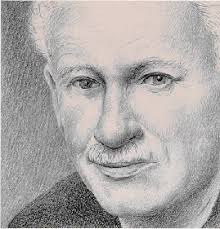I can’t remember the first time someone pointed out to me that “my wires were crossed.”* Setting aside the validity of the observation, it is still a great phrase, and a reminder that we lean heavily on old and familiar language to express novel ideas.
For the moment let’s live with the wrath of our English teachers and treat metaphors, analogies and similes as the same thing. All involve thinking and shaping our thoughts in terms of an object or experience that we already know. The world presents itself to us clothed in the cognitive structures we have acquired and use. Since thought obviously rises from language, our relationship to the world is almost always reframed* in familiar terms that can be stretched beyond their roots. Broadly speaking, metaphors or analogies frame our everyday thinking. They are central to the process of creating meaning.
This begs the question about whether we can “know” an experience for which we do not have a name. It’s not impossible, but it is hard.
What a rhetorician like me wants you to notice is that the “mere rhetoric” that makes up the ordinary discourse of our lives are “tracks”* of thought—itself a metaphor–that deliver us to different insights. My head has probably conjured up that description because I sometimes think about trains and their history. But we could just as easily move on to language common to any  “sphere”* of experience, such as names for colors. We get it when people talk about “blue language,”* a “blue note”* (a musical pitch that has been slightly flattened), a “blue mood,”* or “blue American states.”* But, of course, looking for “blue” Canadian provinces can suggest some cognitive carelessness. After all, Canada has five parties reflecting various shades of thought. There is probably a better frame of reference than our overworked color binary.* As it is, this overworked “blue” is already asked to carry a boatload* of useful thoughts.
“sphere”* of experience, such as names for colors. We get it when people talk about “blue language,”* a “blue note”* (a musical pitch that has been slightly flattened), a “blue mood,”* or “blue American states.”* But, of course, looking for “blue” Canadian provinces can suggest some cognitive carelessness. After all, Canada has five parties reflecting various shades of thought. There is probably a better frame of reference than our overworked color binary.* As it is, this overworked “blue” is already asked to carry a boatload* of useful thoughts.
While metaphors are vital tools for thinking, at the same time they can lessen the chances that new insights might be more helpful. As rhetoric theorist Kenneth Burke once said, language is essential, but categorical language can also lead us to some “trained incapacities.” To say that “the mind is a computer”* might have some uses, but it can also blind us to the huge differences between the living and inert worlds.
We are destined to construct our lives out of the bits that have made the most sense to us. The familiar language that we use is selective, idiomatic, and limiting. But there it is. We are the products of a large reservoir* of images and words that we can easily access. For example, it was a leap in my own thought processes to read and then ponder the useful idea of “brain fog.”* The phrase describes a universal experience that needed a name.
![]()
All of this talk of what amounts to “linguistic determinism” is a reminder to be conscious of the mental straightjackets* we have fitted out for ourselves. In the end, it is often poets in words and music who remind us that we may not be using the right kind of language to characterize the world around us. They have usually engaged in the kinds of elastic* thinking that can open up new opportunities for thought.
_____________
*Even this short piece is not exempt from a large number of metaphoric references.



 Our 45th President was especially shameless at shifting the blame for our national woes to everyone but his followers. A sandwich of invective laced with lies is his thing. This may be a natural human habit we all have from time to time, but rarely has a national leader so consistently sought favor by rhetorically degrading others for the obvious benefit of excluding them from the tribe. The targets are as familiar as the overblown language: “the radical left,” the current president,” “the liberal media,” “recent immigrants,” and so on. Trump is one of a long line of American demagogues, from Huey Long to James Curley to Joseph McCarthy. The surprise to me after 45 years of studying political rhetoric is that the nation has not outgrown its love of political flamethrowers. Paraphrasing an insight from the Netflix’s series, The Diplomat (2023), perhaps it is not enough to be a decent person “in a time when decency has lost its hold on the public imagination.”
Our 45th President was especially shameless at shifting the blame for our national woes to everyone but his followers. A sandwich of invective laced with lies is his thing. This may be a natural human habit we all have from time to time, but rarely has a national leader so consistently sought favor by rhetorically degrading others for the obvious benefit of excluding them from the tribe. The targets are as familiar as the overblown language: “the radical left,” the current president,” “the liberal media,” “recent immigrants,” and so on. Trump is one of a long line of American demagogues, from Huey Long to James Curley to Joseph McCarthy. The surprise to me after 45 years of studying political rhetoric is that the nation has not outgrown its love of political flamethrowers. Paraphrasing an insight from the Netflix’s series, The Diplomat (2023), perhaps it is not enough to be a decent person “in a time when decency has lost its hold on the public imagination.”
